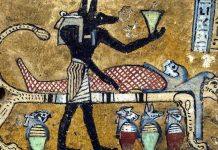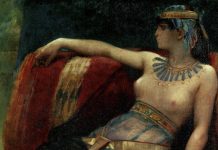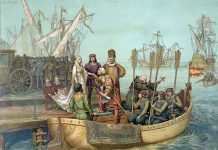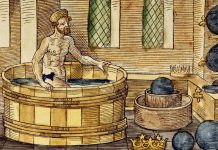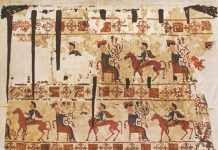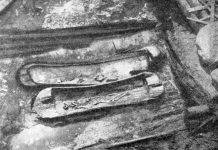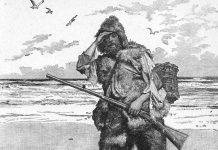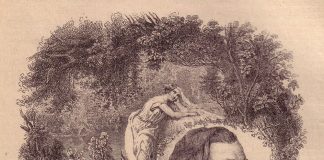In the second half of the XVI century, an acute rivalry between England and Spain for supremacy on the seas unfolded. Pirates played a significant role in this struggle. The ongoing battle went on with varying success, but its epicenter soon moved to the waters of the New World, where almost every armed vessel, under whatever flag it was, was engaged in piracy. The main centers of piracy were secluded bays and coastal nameless islands near the main sea routes, along which whole caravans loaded with gold, treasures and precious spices that merchants carried from overseas colonies to European metropolises moved.
Each of the warring parties had their favorite places for ambushes. So, the English ships were lying in wait for the Spaniards returning from the New World, hiding in the numerous bays of the Canary and Azores Islands.
The Five Ports League still enjoyed all the benefits of its alliance, cynically cooperating with the lucky pirates. Thus, in one of the ports of the League, Dover, the largest trade market for Spanish nobles flourished. It is characteristic that they were literally bought up by intermediaries in batches. For each well-dressed Spaniard promising a rich ransom, the intermediaries, without haggling, paid up to one hundred pounds sterling.
One of the largest suppliers of Spanish “live goods” was Henry Mainwaring, an Oxford graduate and part-time pirate. Henry left memoirs in which he knowingly claimed that all the navigators and discoverers of the lands of his era, without exception, were engaged in sea robbery.
Nevertheless, the king forgave Mainwaring and even granted him high court titles. Not content with this, the king soon appointed the repentant pirate governor of the castle at Dover. This post actually put him at the head of the League of Five Ports. In other words, a former pirate became the chief administrator of an organization created to combat piracy. The circle has closed.
In his new position, Mainwaring proved to be a capable organizer. He rebuilt the fortifications of the ports under his jurisdiction, replenished the stocks of weapons and powder depots, and did a lot for the security of these territories. He later became a member of the English Parliament.
Less than a hundred years will pass, and the ships “St. George” and “Five Ports” will sail from these berths. At the head of this small flotilla will be the admiral, he is also a hydrographer, writer and pirate, William Dampierre. And the navigator on the “Five Ports” was Alexander Selkirk, who during his lifetime was destined to become the prototype of the legendary Robinson Crusoe.





